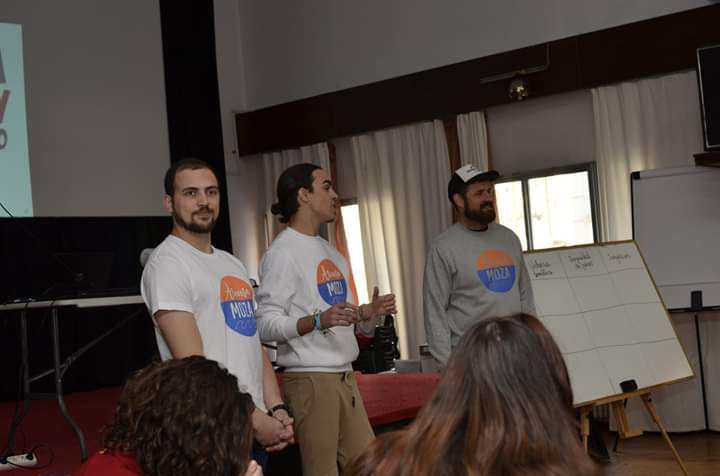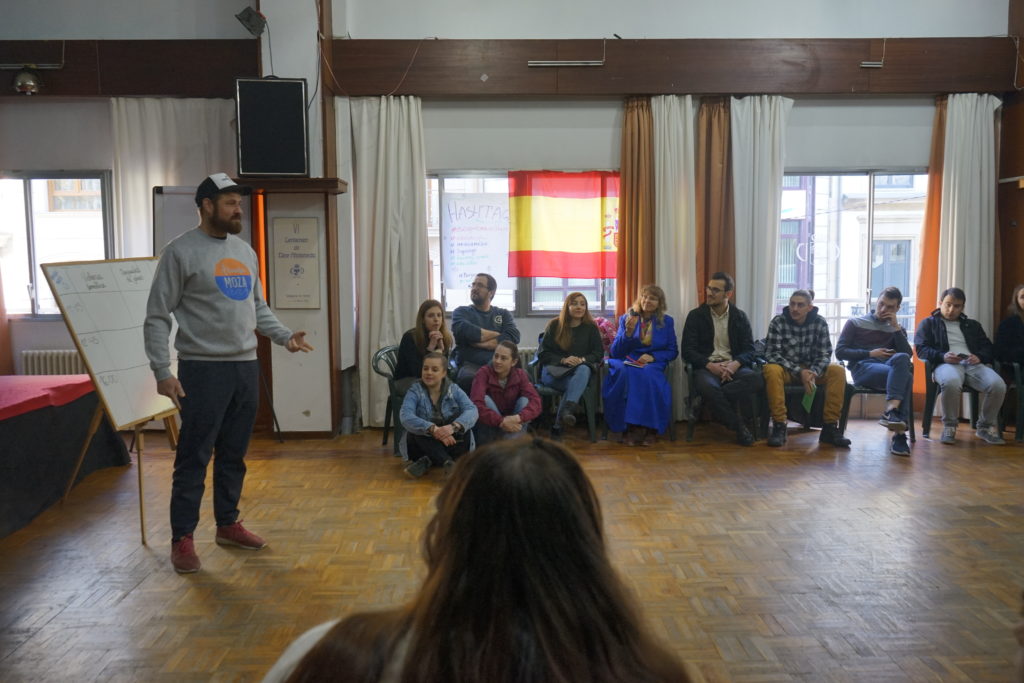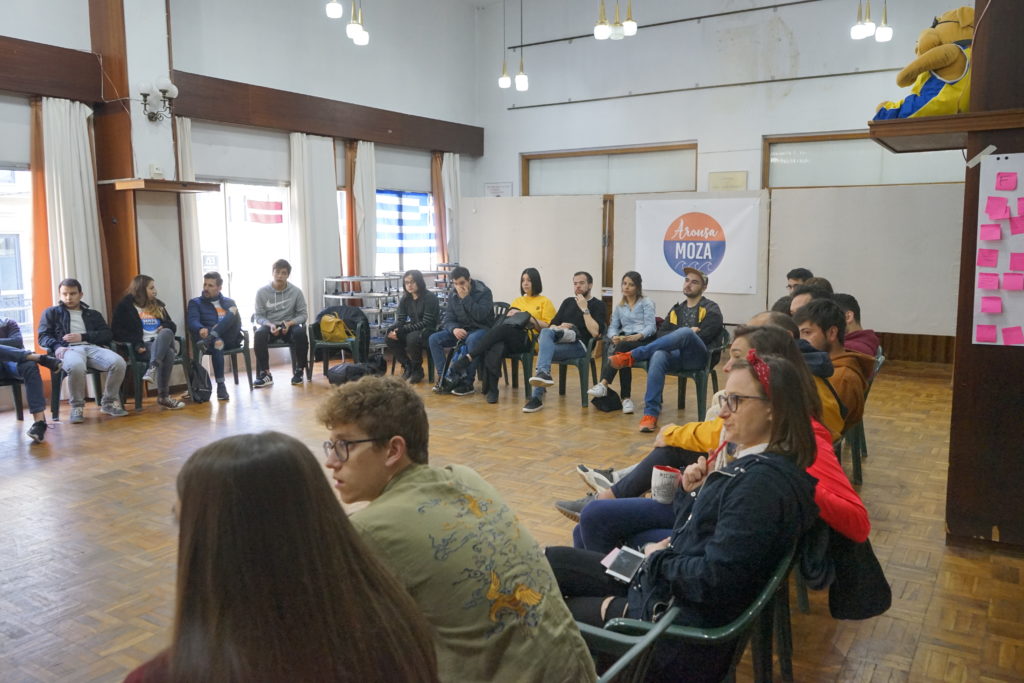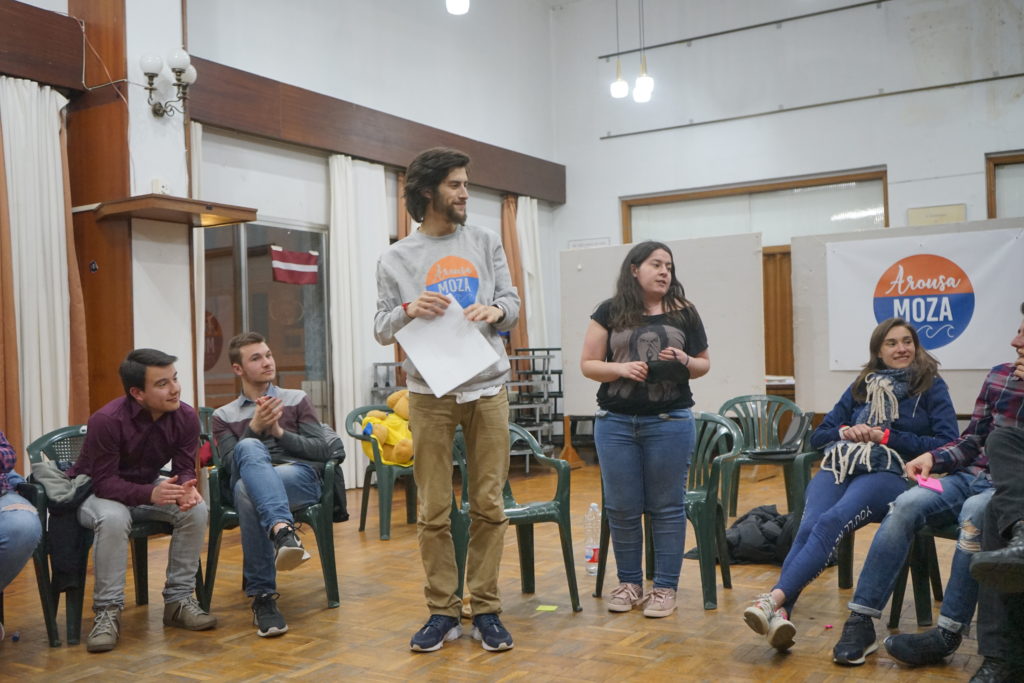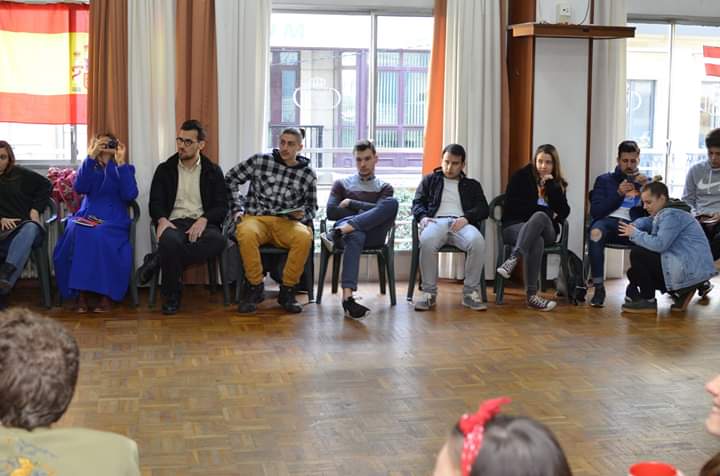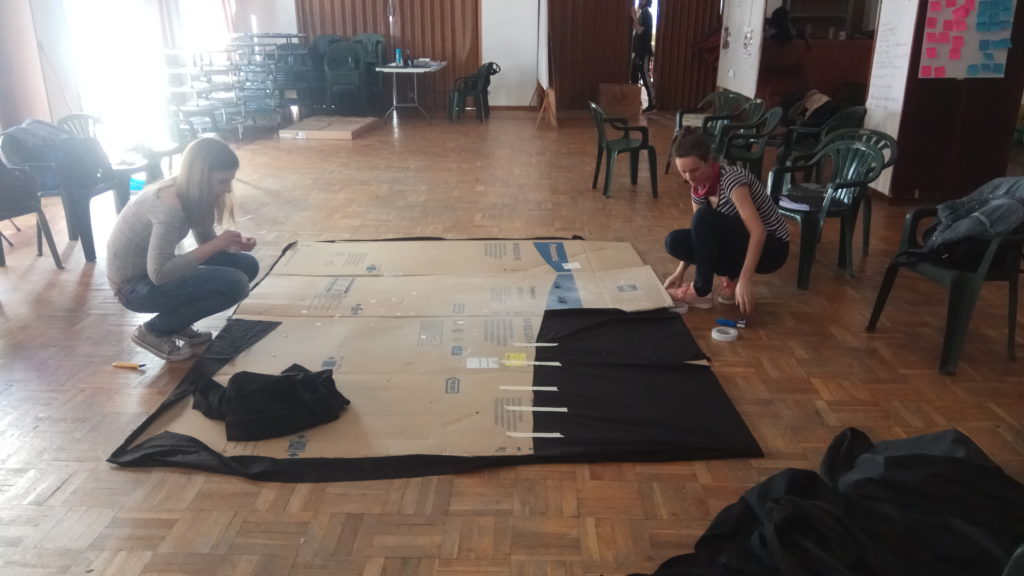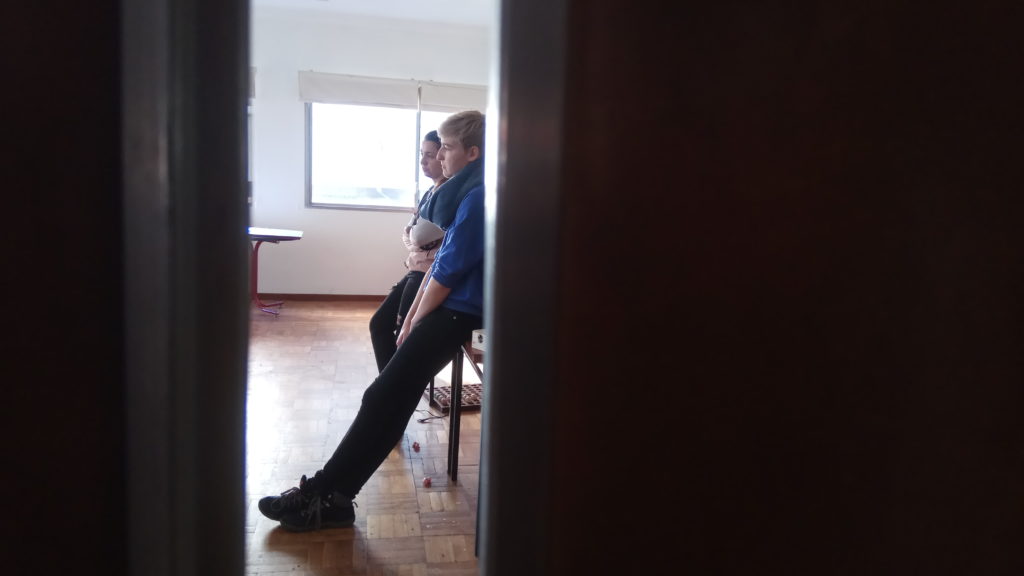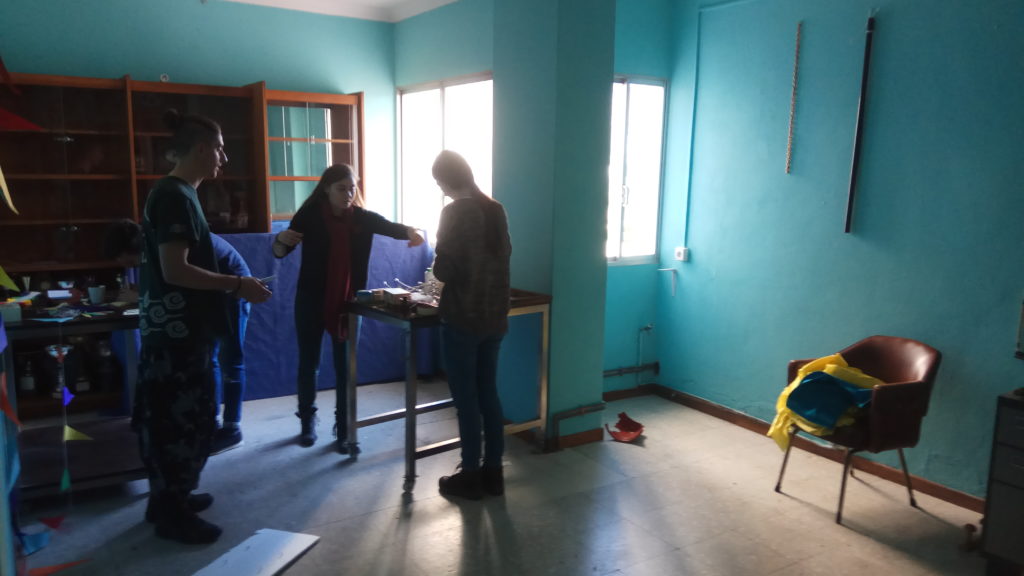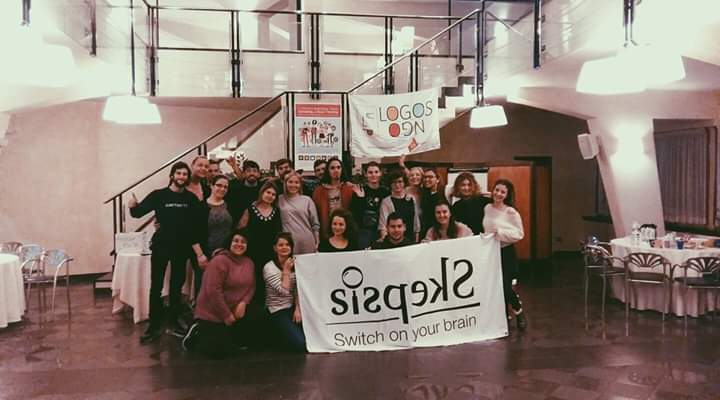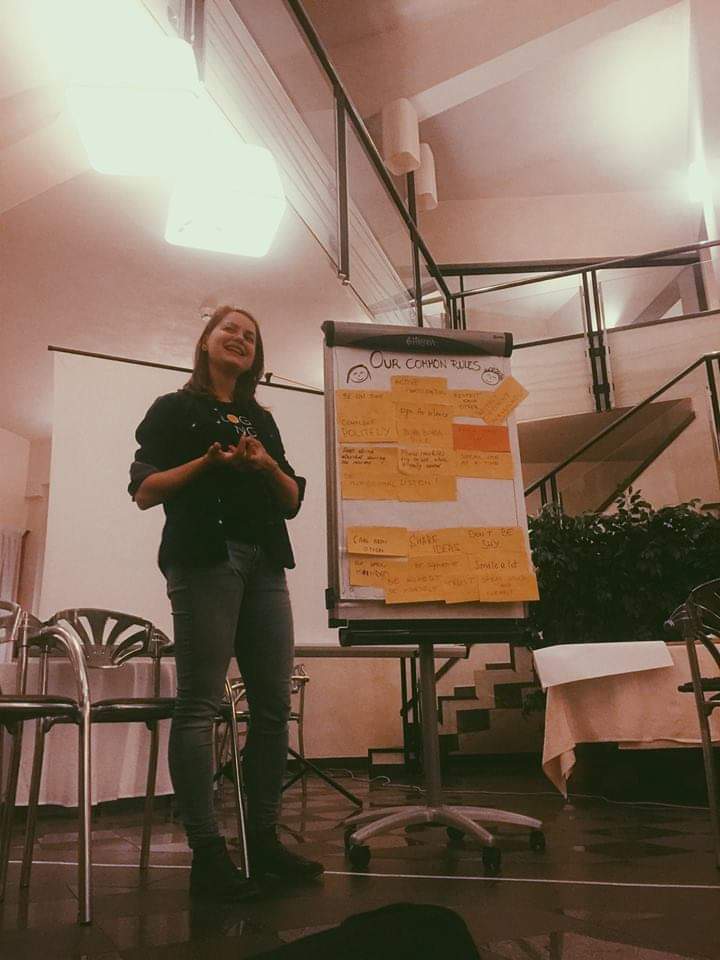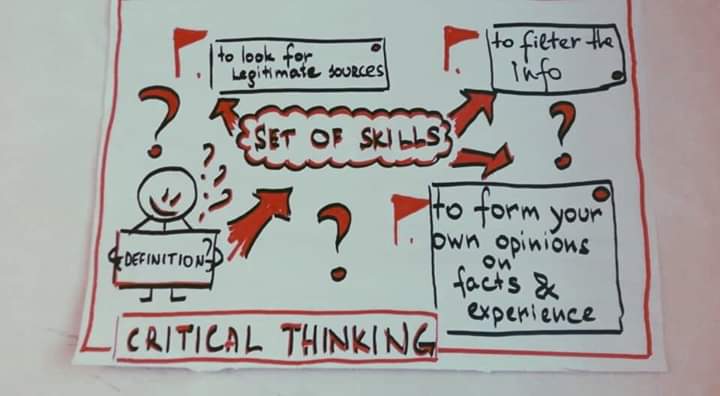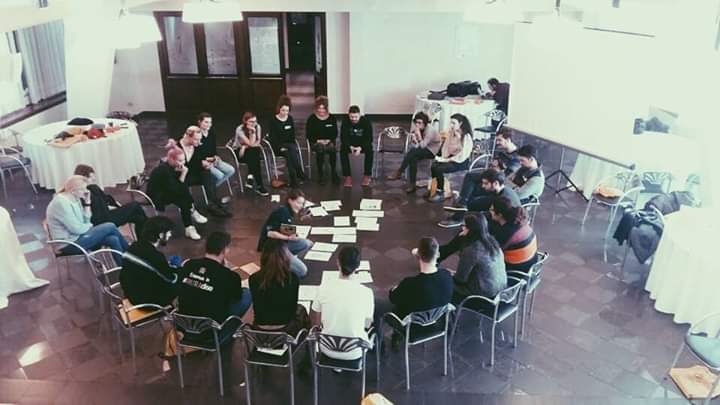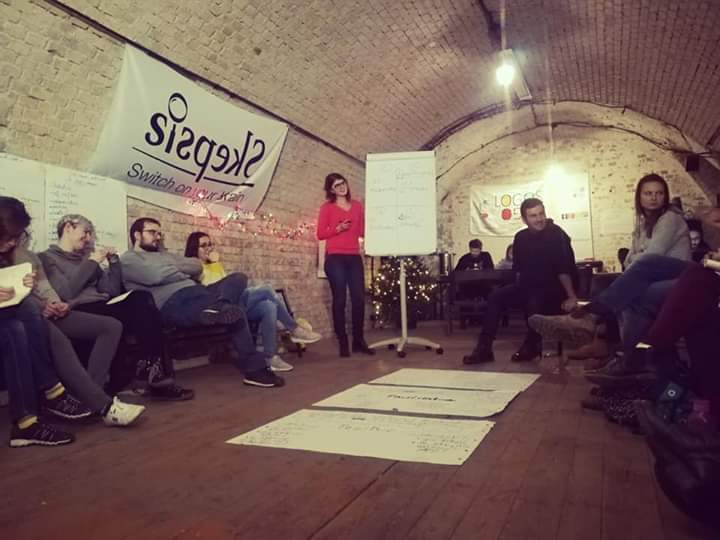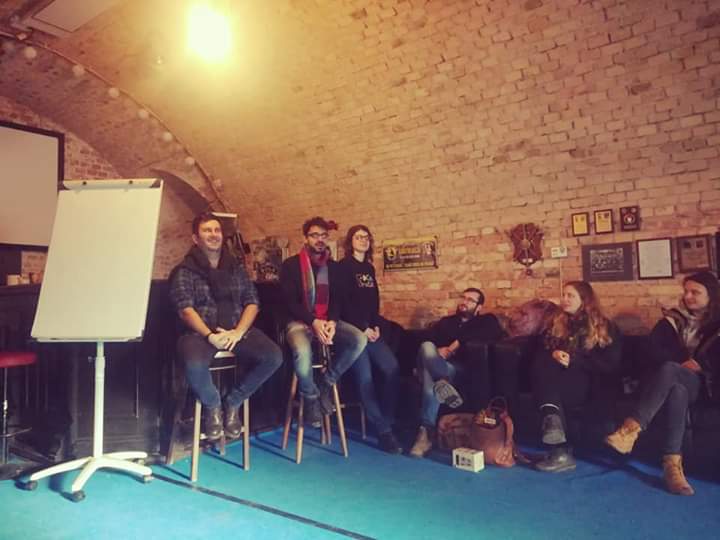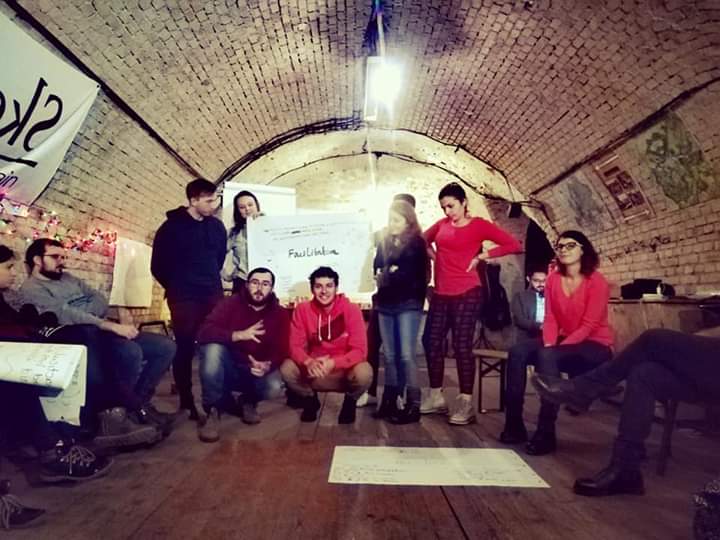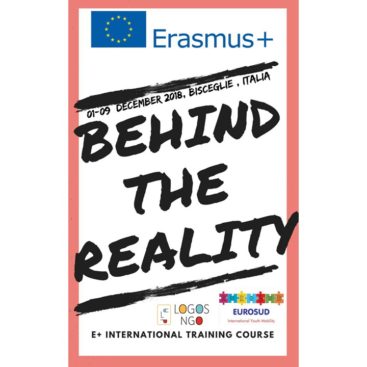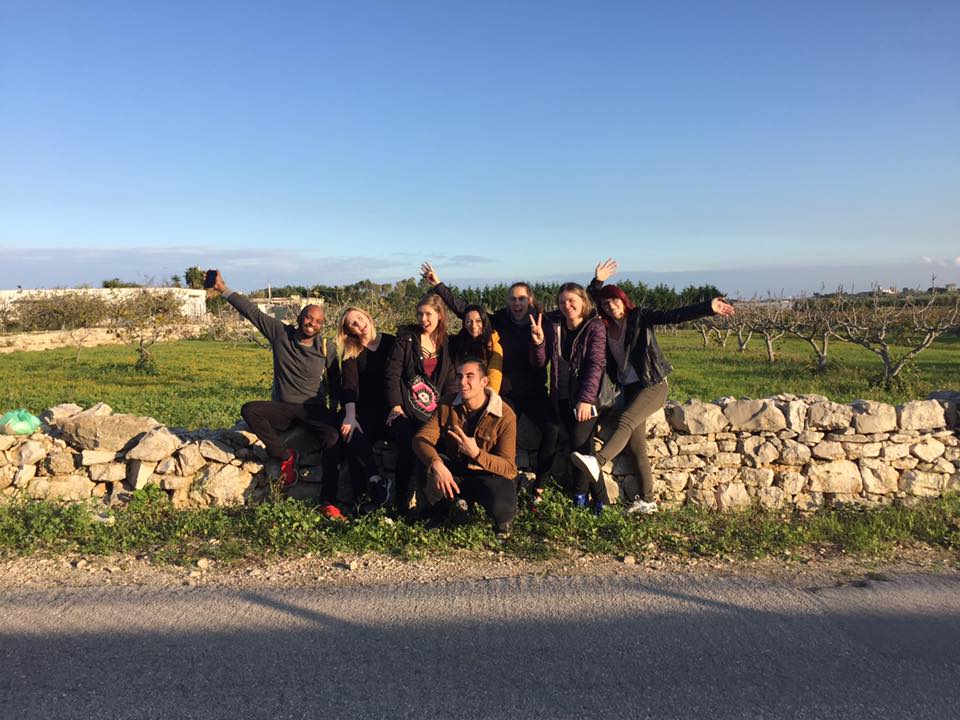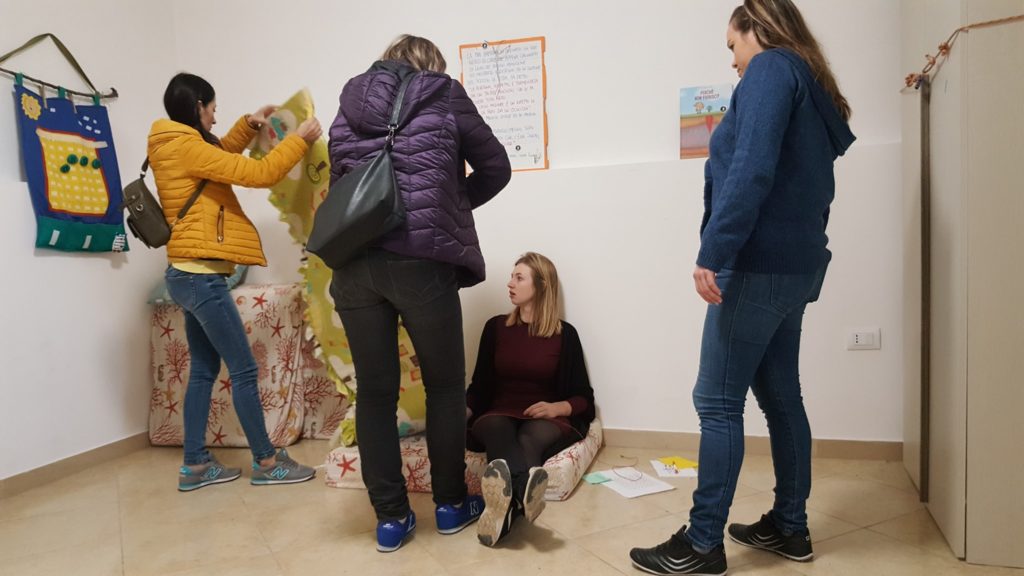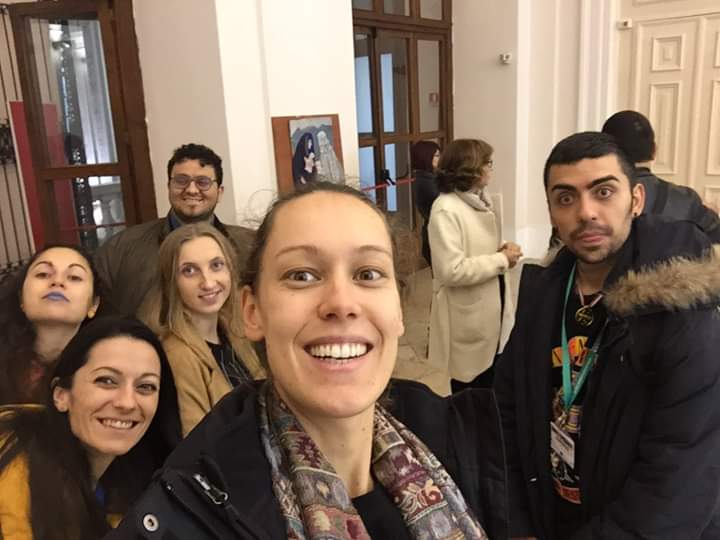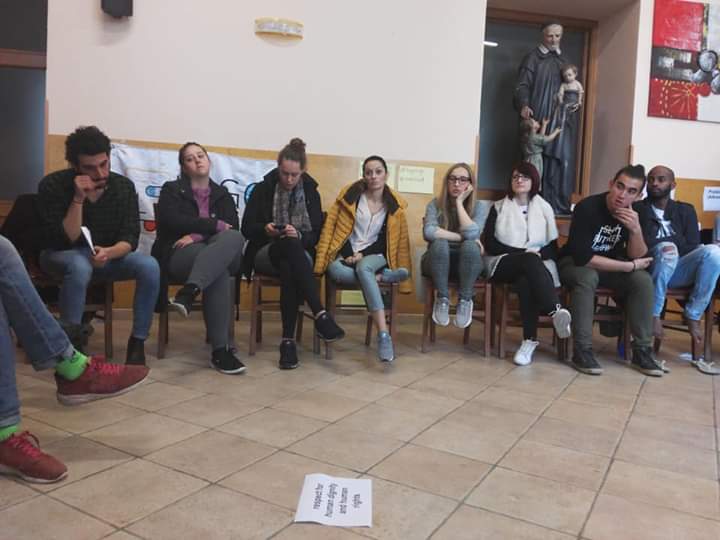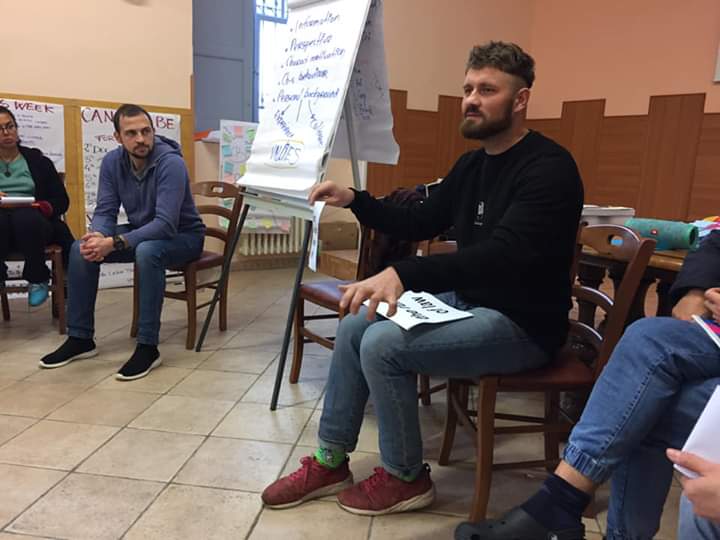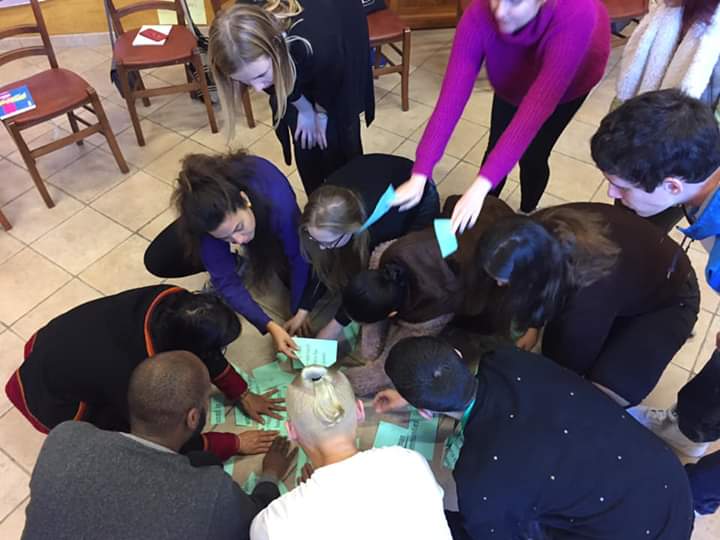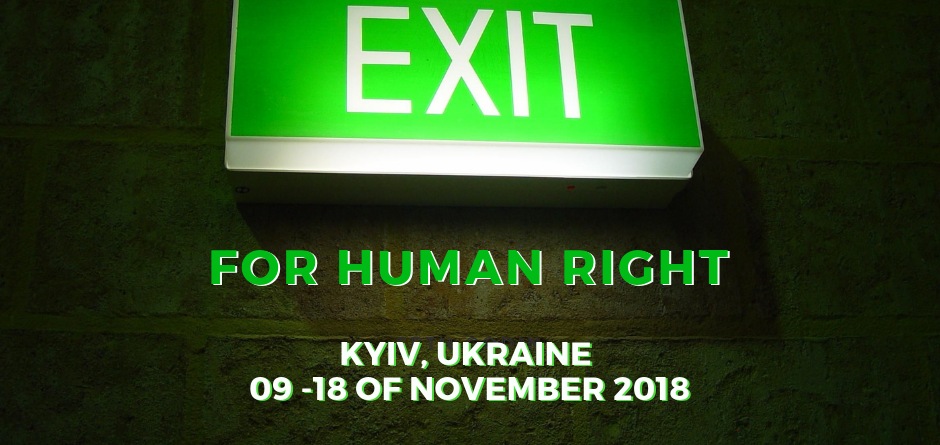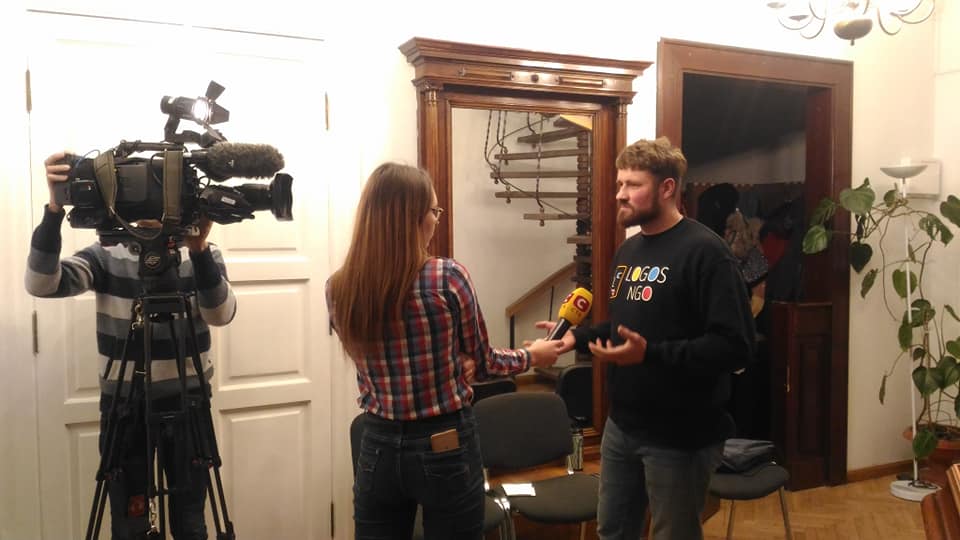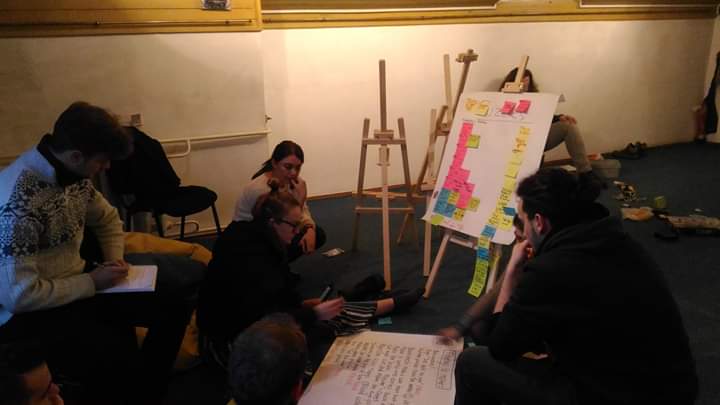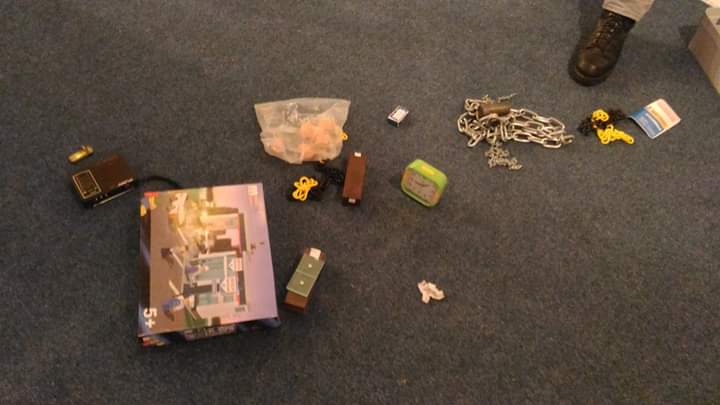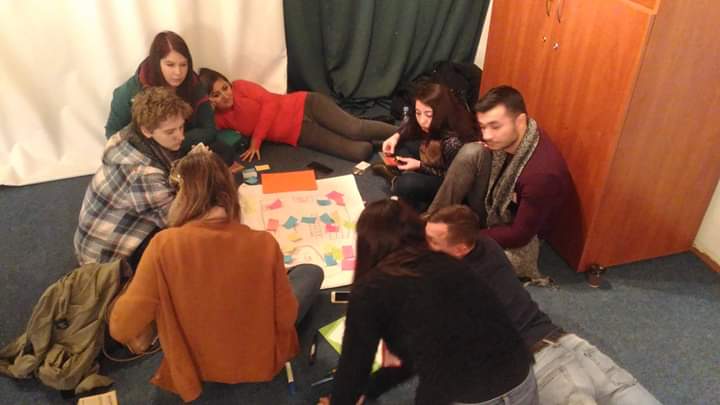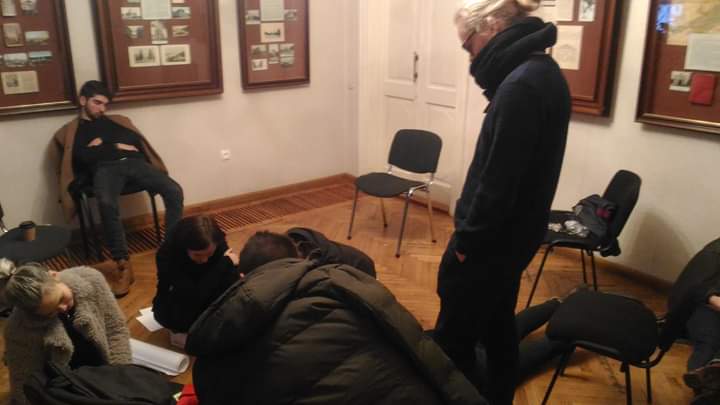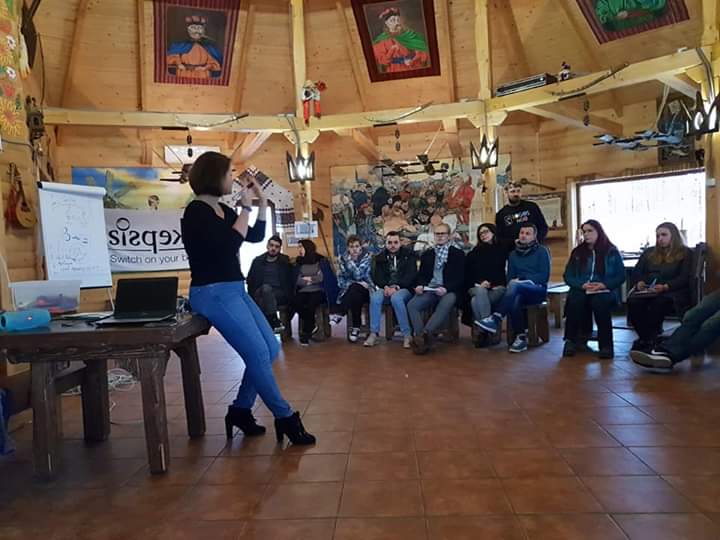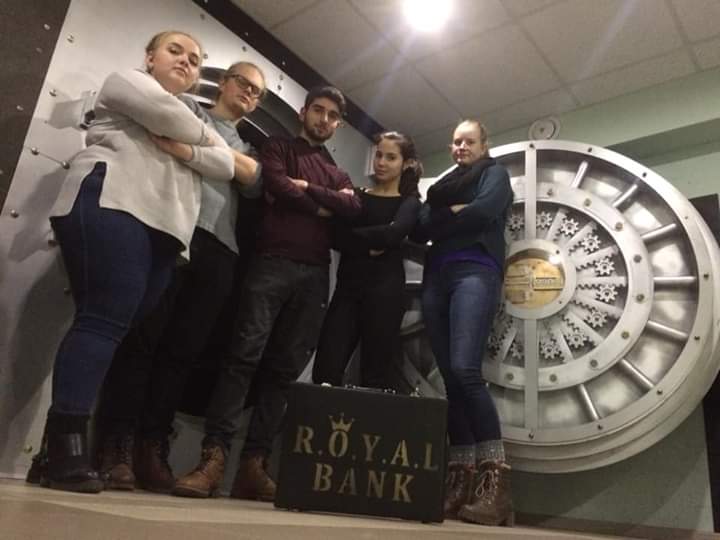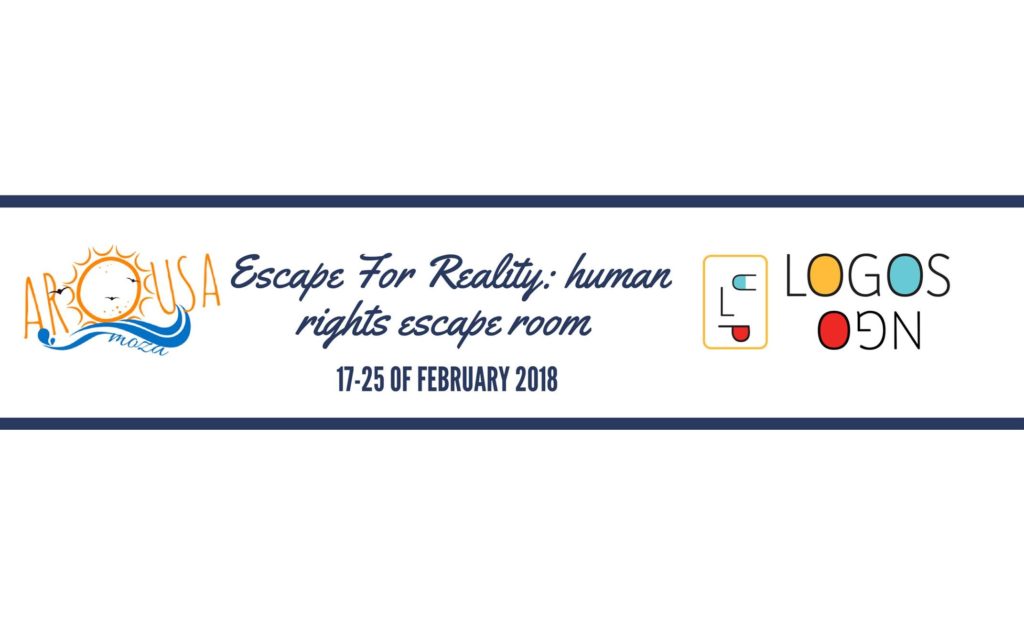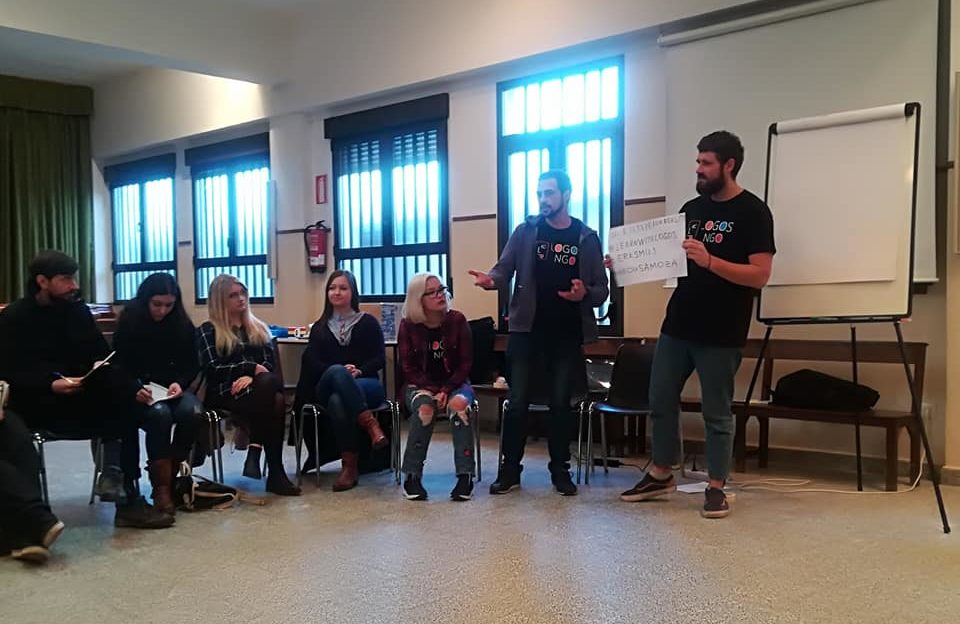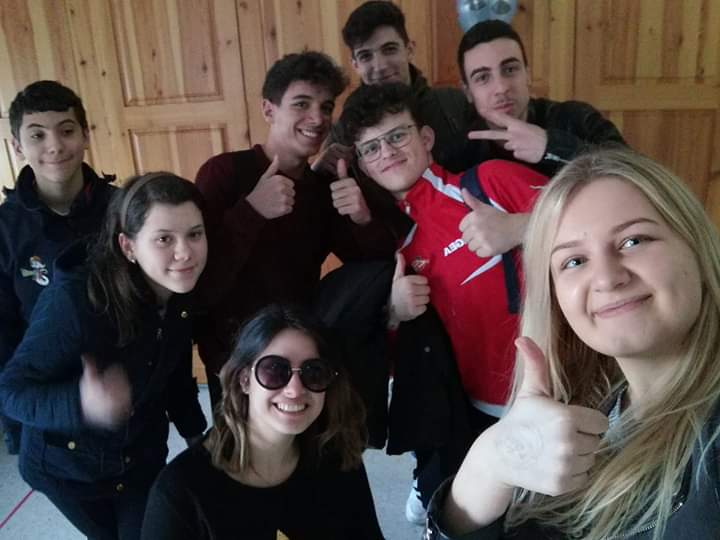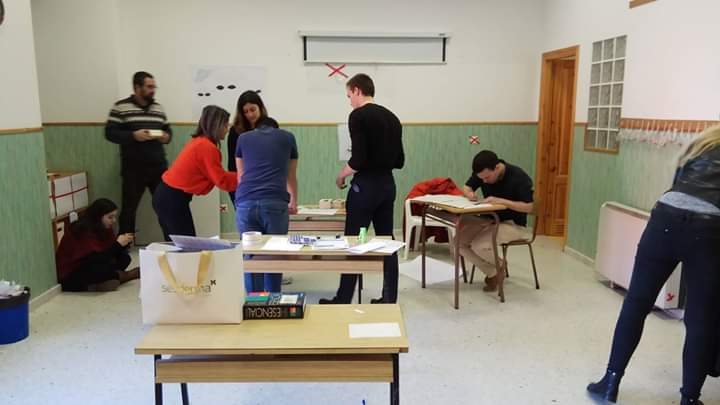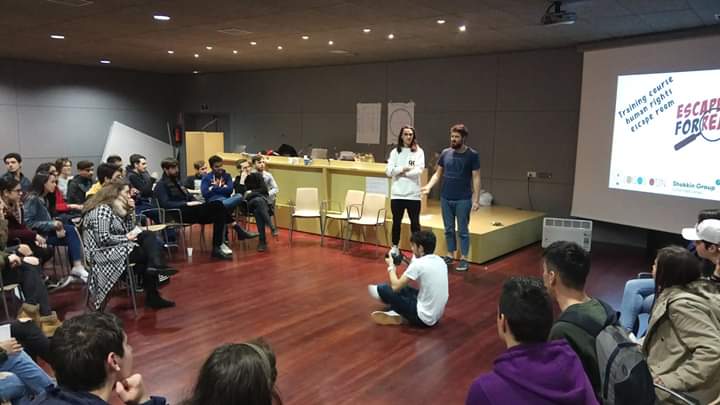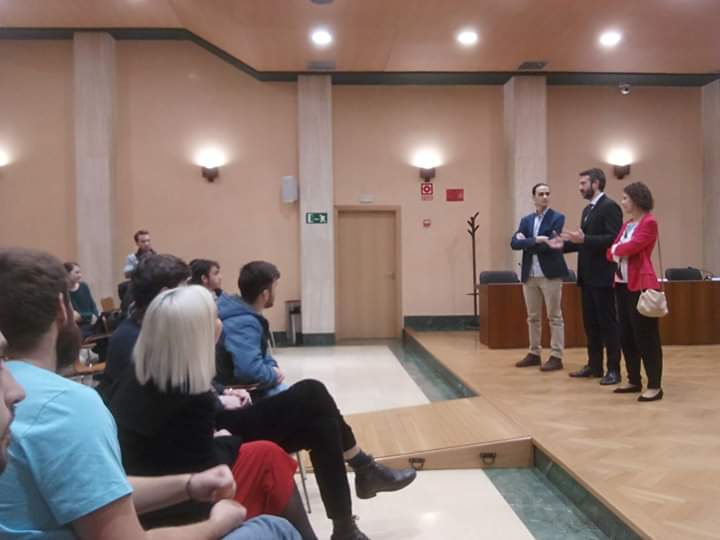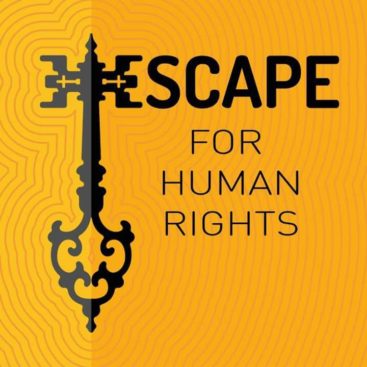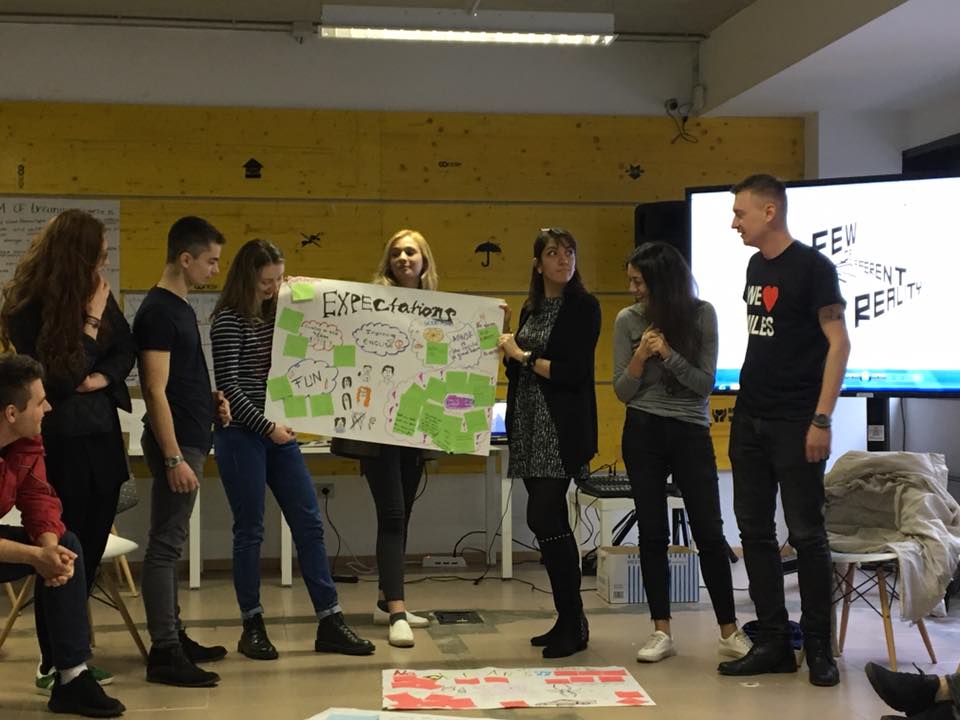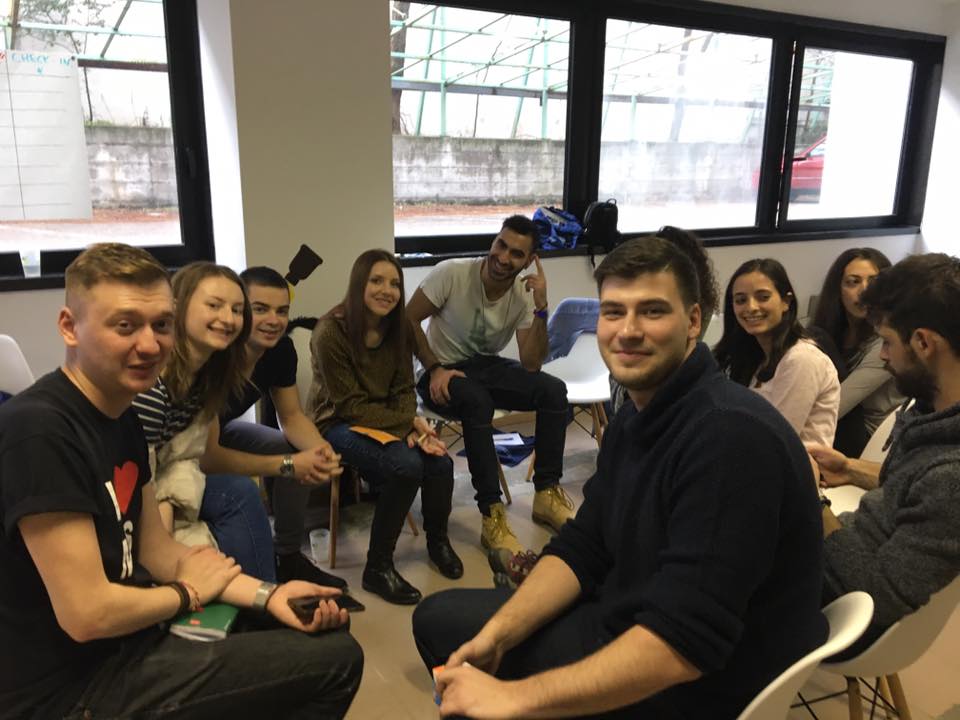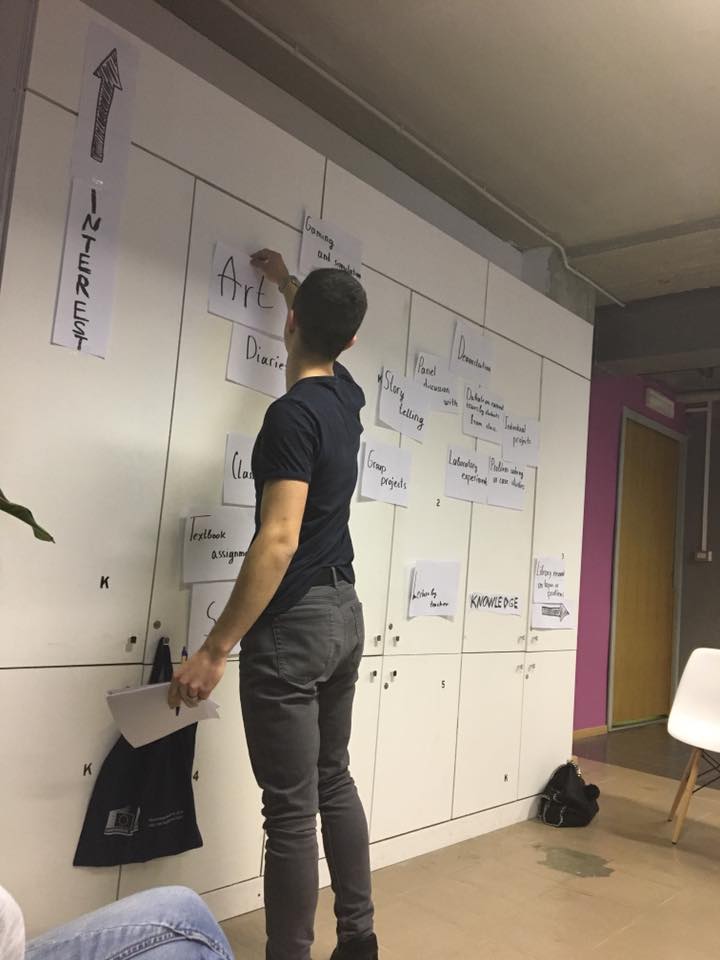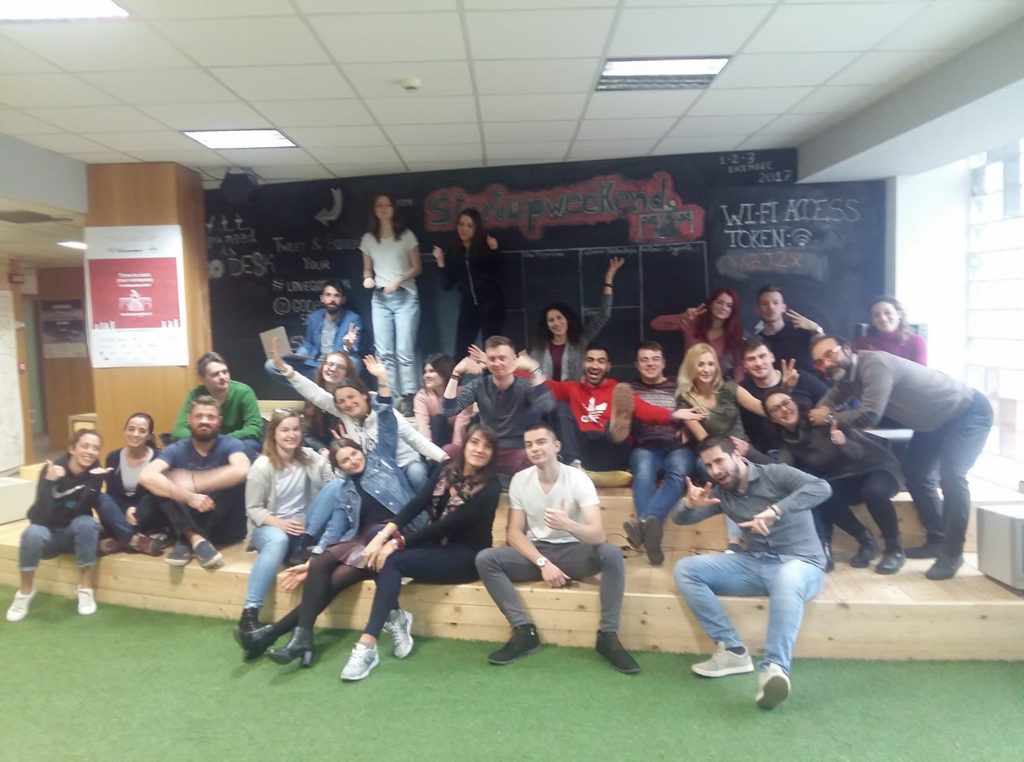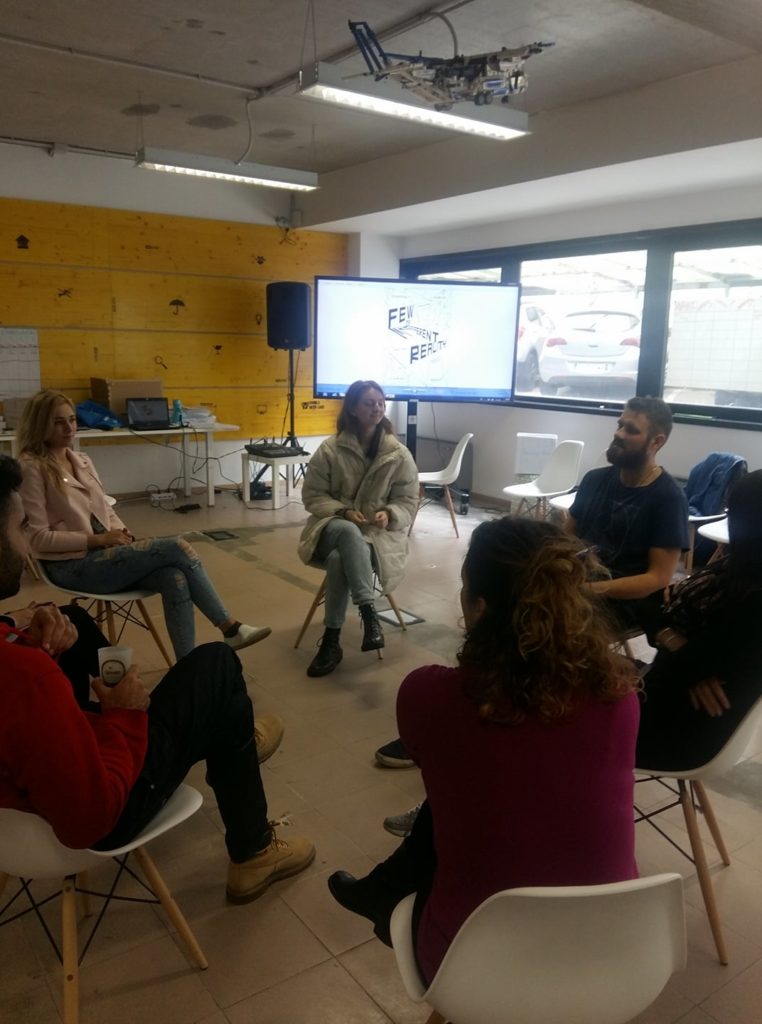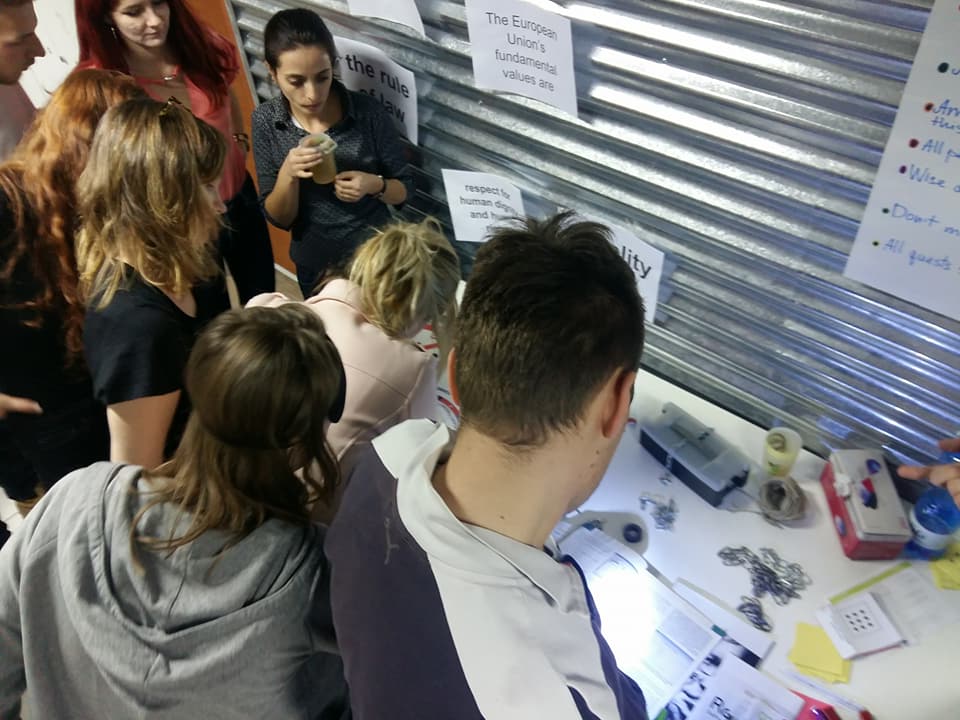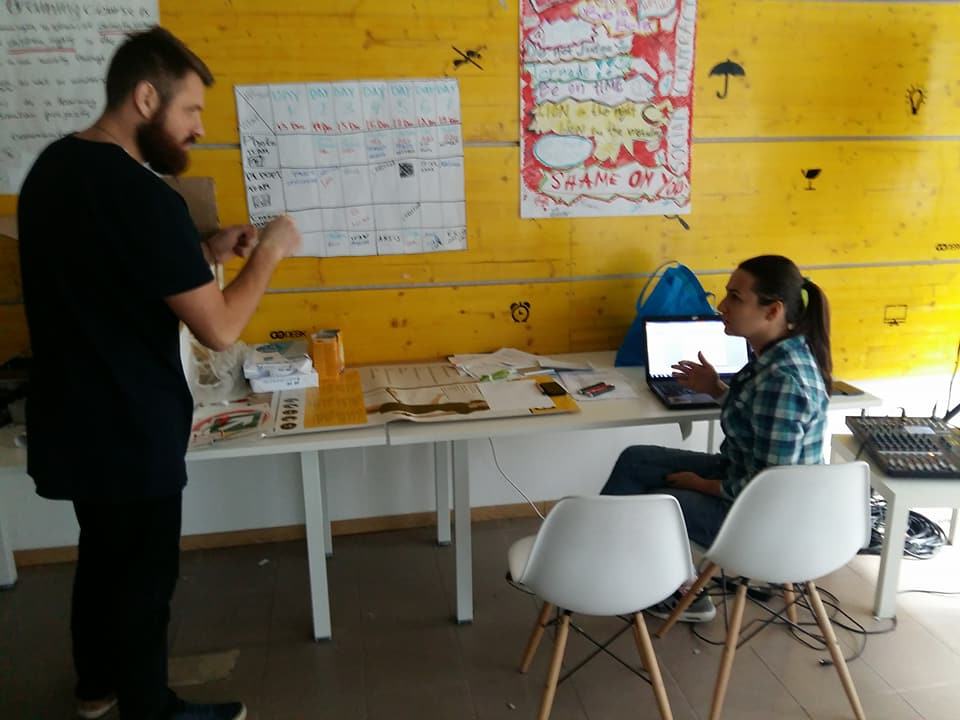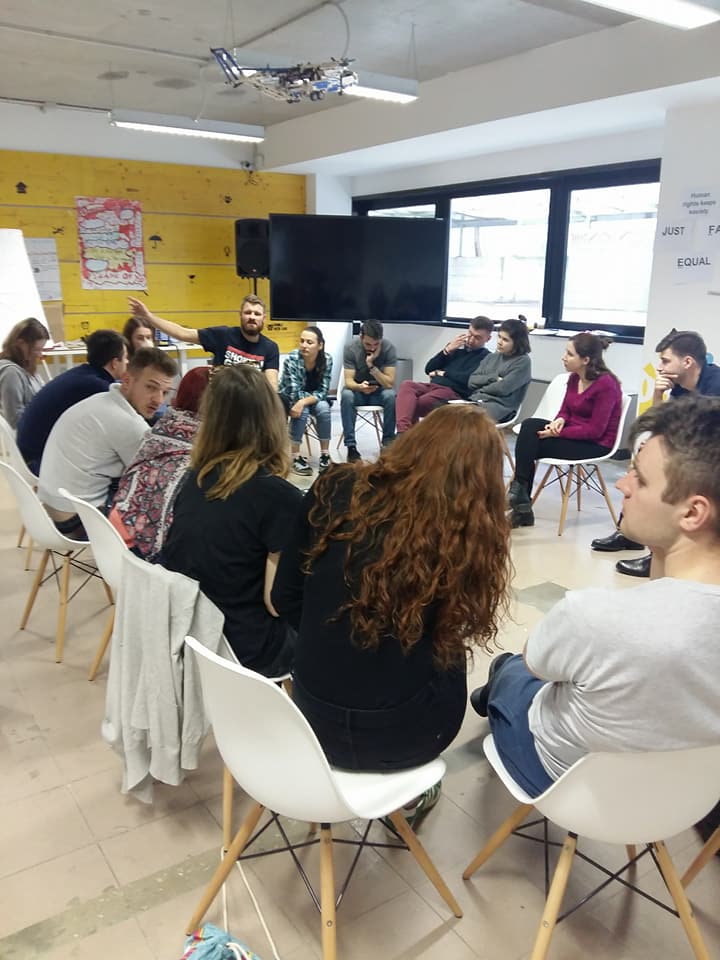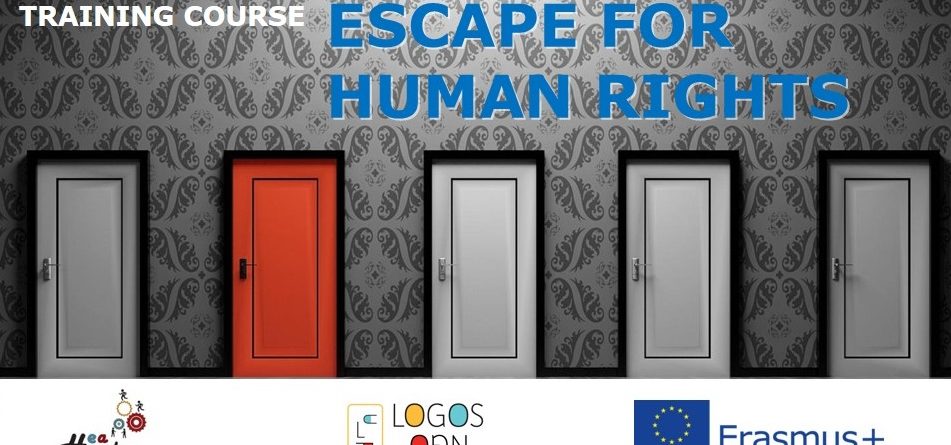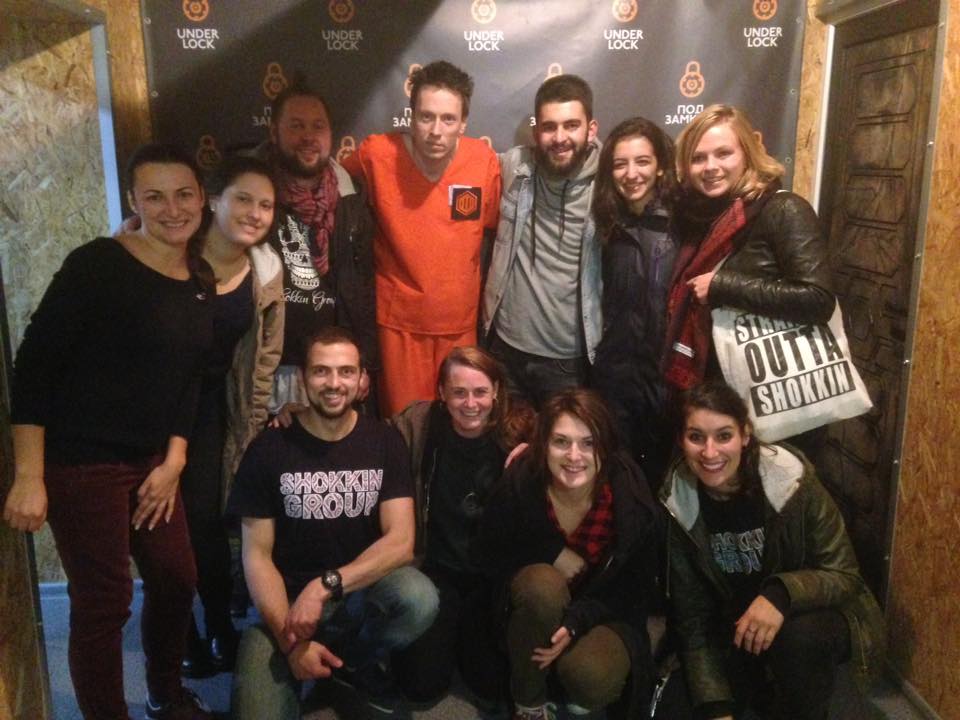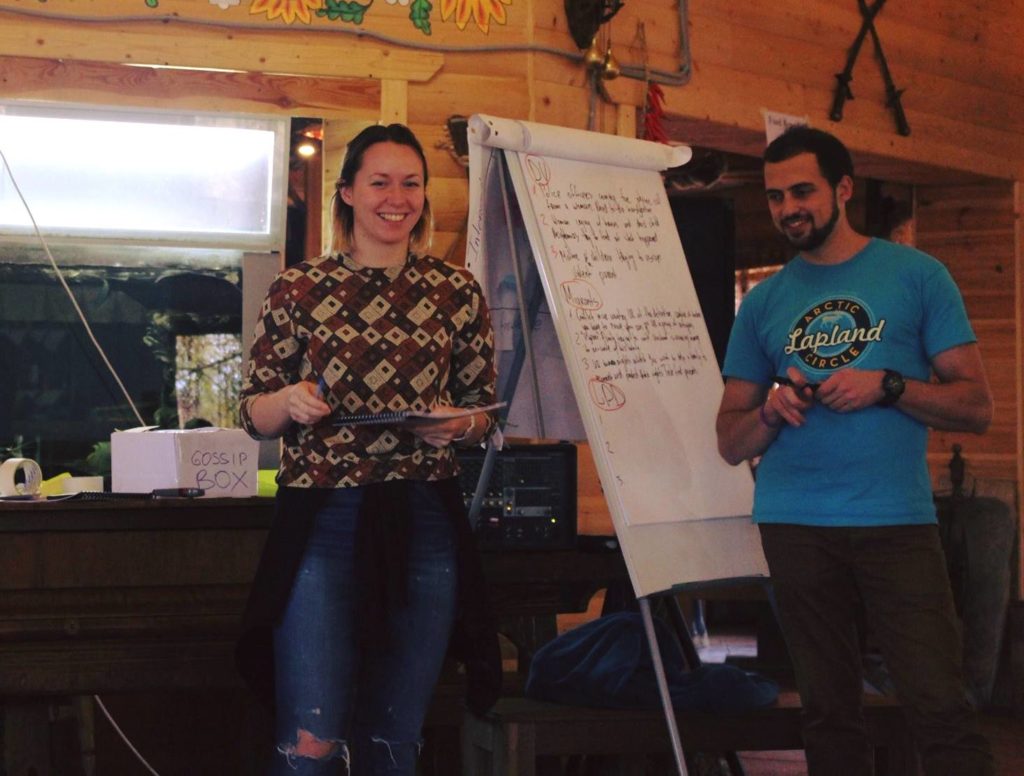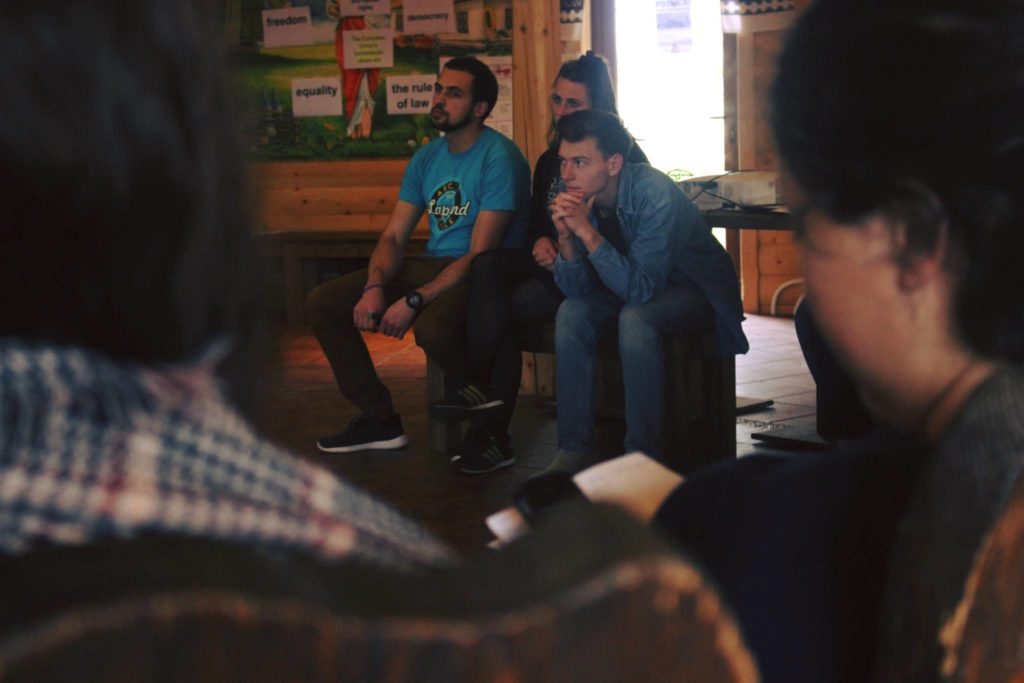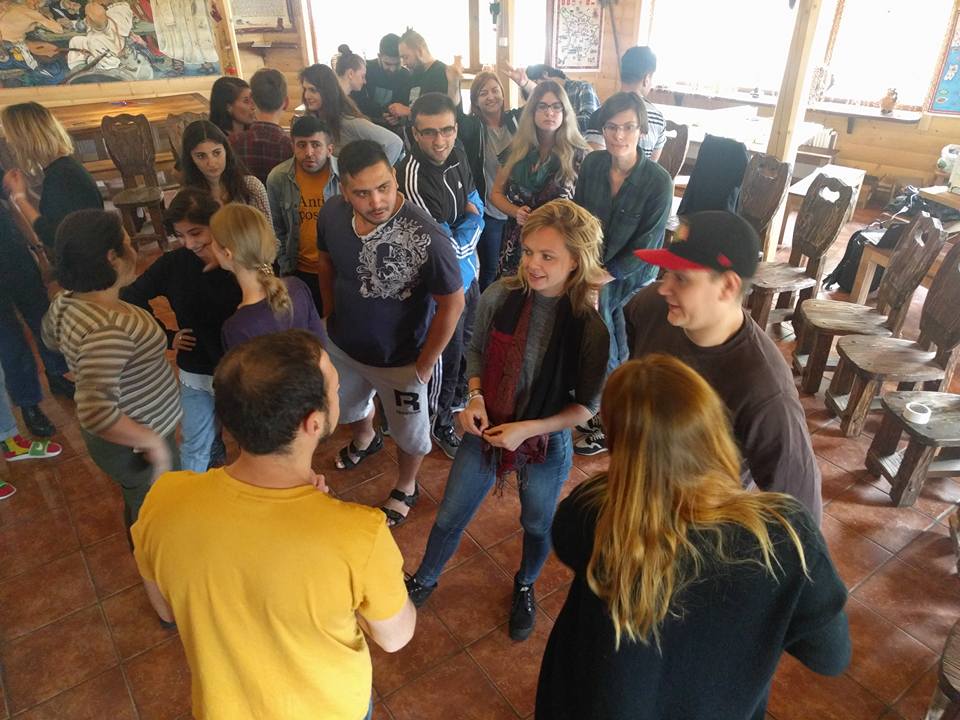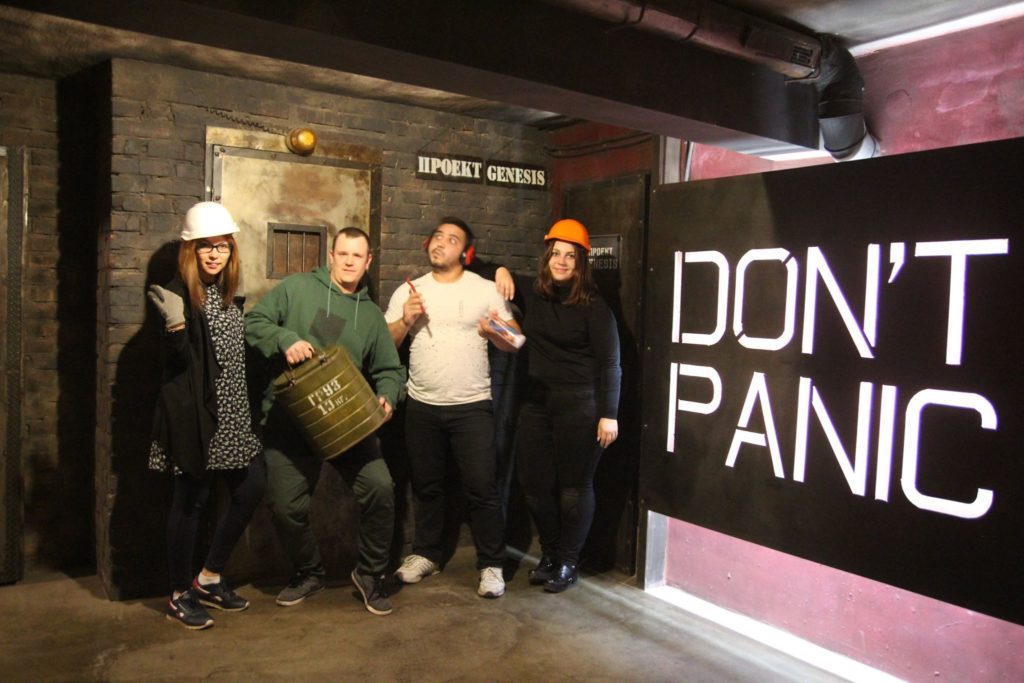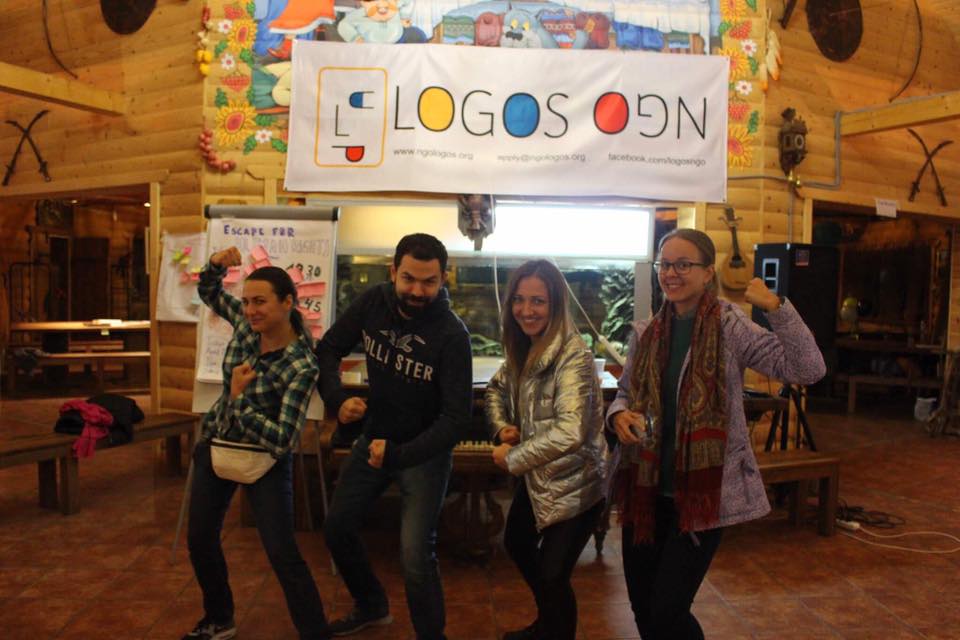Escape for reality 2.0. Vilagarcia, Spain, 2019
What was it about?
“Escape for reality 2.0” was a second training course about escape rooms that we did in Vilagarcia, Spain. First one happened a year before and as it was a success we applied and implemented second part of it on 18-24 of March, 2019. Project was powered by Arousa Moza and Logos under Erasmus+ programme with funds from Spanish national agency.
At this training course, we had 28 young leaders and NGO activists from 6 countries. Our aim was to raise awareness about Human rights in spheres of domestic violence, gender discrimination and immigrants rights abuse through making Human rights escape rooms.
This was a challenging project as we had only 5 days to do what we usually do in 7-8 days. But thanks to our great participants we managed it! We made 3 human rights escape room in spheres of domestic violence, gender discrimination and immigrants rights abuse.
Following objectives were set for the project:
- Spread ideas of human rights protection
- Provide youth workers with tools and knowledge on how to organise escape rooms, which will bring ideas of human rights protection to greater amount of people, especially youth.
- Bring understanding of nowadays problems in human rights area through giving examples, ideas and theoretical knowledge during the project
- To create working toolboxes with information about escape rooms making
which can be used in local communities
- Show that dealing with human rights can be done in various ways through providing participants with ideas and methods on non-standard approach to human rights education
- Start a network of youth workers in Europe who are ready to do quest rooms on human rights by giving them an opportunity to practice this approach and creating a good atmosphere for connection between participan
- Raise awareness of such human rights topics as domestic violence, gender discrimination and immigrants rights abuse.
How did it go?
The training course was delivered by trainers Emir Shevkiiev and Marko Boyko.
At the project, our participants built 3 escape rooms and we invited local people to come and play. At the open event, we had around 40 guests, who had a chance to learn and play at the same time. We managed to build these rooms in period of 1,5 days, which is a record for us, as usual, we spent 2-4 days for that.
Partners of the project
The project was implemented by Logos and Arousa Moza , but we had great partners supporting us with their contributions and members:
- Romania - Asociatia Pentru Dezvoltare Activa and Asociatia "ARYAS"
- Greece - Kinoniki Sinetairistiki Epicherisielliniki Symmetochi Neon
- Latvia - Biedriba "Logos Latvija"
- Italy - EURO SUD

